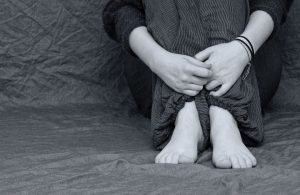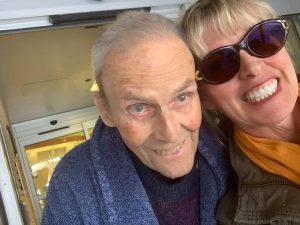Grief, social isolation and Empathy.
Social isolation with someone, family and yet we mustn’t forget the people who are living alone.
Friends, family, coworkers and neighbours who have gone through a divorce, a separation, or the death of a loved one. Social isolation, being alone for long periods, no contact with other people, it is not good for our long-term mental health. Of course, there are times when we find ourselves absent from a companion or partner but that is a different experience. As humans, we are wired for connections and this is both physical and emotional. In a time of lockdown and social distancing, connections have to be more creative.

Some of us have not hugged a relative since March. Imagine the loneliness! I know to touch, hugging is incredibly powerful for the giver and receiver, those wonderful ‘happy, feel-good hormones’, oxytocin, dopamine and serotonin. We need these to help our mental and physical health. Do you feel better when you get a hug and give a hug?
It has been months, and seems a lifetime, hugging my 95-year-old dad and sharing one of my famous butter tarts.
Together we would, or I would read articles, from my phone or the local paper different news websites on a variety of topics. He can no longer see well enough to read and as an avid reader, this was a terrible adjustment. Rejecting new technology and audiobooks, he uses the radio as his up do date info for world events. Dad likes to hug and without this physical contact for the elderly, it is concerning. Many of the patients in his care home have no visitors. Sometimes a few residents would sit close enough to listen and engage in conversations. The feel-good human connections eyeball to eyeball. For months no contact at all and with staffing shortages not able to give the residents the one to one time. The long term effects will be observed as patients lose their ability to communicate, decline in cognitive ability and will to live.

for our mental health.
It is important to remember however, there is nothing more meaningful than giving comfort to someone who is grieving. Grieving alone only adds to the loneliness staring across the table at the absent chair at breakfast. The empty seat in the living room. The lone rocker on the porch and the personal things like a toothbrush. The journey through grief is sharing empathy. For example, empathy can be going to their house and sharing a cup of coffee, sharing a meal and a soft shoulder in listening.

I recently spent some time with my friend and her father, whose wife had died. The loss was profound and the grief only intensified under social isolation. No one allowed in the home for months. Each of them grieving in separate parts of the country in confined spaces. Travel prohibited and the added fear getting Covid kept them apart. What happens under these conditions? Well, the journey through grief is an individual process, there is no ‘wake up and all is well’. It is a journey. Using the computer just didn’t cut it. A flat face across a screen is not the same as sharing a cup of coffee across the table. Both of them trying to deal with the loss in their unique way.
Grief affects each of us differently. Often people stop eating because every room reminds them of their loved one, making dinner reminds them of the years engaging in conversations together. The absence of family and friends to visit adds to the loneliness and depression. People don’t eat so they get weaker, may forget to take medications or feel ‘why bother’, become too tired to make meals and don’t eat and get weaker and sink into a deep depression.

None of us can escape the pain of the death of a loved one. One day, each of us is inevitably going to be on the journey of dealing with the pain. The gut-wrenching pain of grief. It does not have to be terrifying and lonely.
It’s important that no matter what’s happening in our lives, to invite empathy to dinner.
They are both important guests in our lives and as we go through the journey of grief we will eventually, on our own time and in our special way, find the path, our new reality in life with meaning, purpose and happiness.
Here is an excellent presentation by Dr. Aylia Mohammadi and her presentation at TEDx Winnipeg 2019.

We can learn to understand grief and the impact of the Covid crisis on those suffering alone. Talking over the fence, leaving meals by the door and chatting through the screen, keeping the safe social distancing and sharing grief and dinner with empathy.
https://www.youtube.com/watch?v=IgA2pSeg2SY

